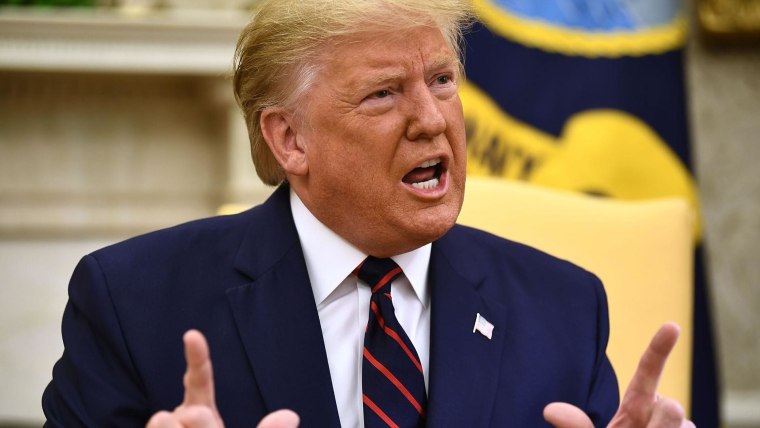As the latest round of impeachment hearings began this morning on Capitol Hill, the White House's rapid-response operation argued that congressional Democrats are launching "an unprecedented impeachment sham over policy disagreements."
The idea, apparently, is rooted in a strange assertion: Donald Trump tried to implement a legitimate and legal foreign policy toward Ukraine. Some in the administration had a problem with the president's agenda, the argument goes, which rascally Democratic lawmakers are now exploiting to manufacture an impeachment crisis where none should exist.
Oh how I wish this made sense.
In case this isn't painfully obvious, Trump didn't have a foreign policy, at least not by any coherent definition of the phrase. He had a scheme in which he intended to extort a vulnerable foreign ally into helping him cheat ahead of his re-election campaign, using congressionally approved military aid as leverage to advance his own interests over the United States'. But in this country, corruption does not a foreign policy make.
The Washington Post's Greg Sargent had a good piece along these lines this morning, noting that Trump's gambit in no way reflected a foreign policy.
[The] big lie is the idea that Trump's actions in this scandal were rooted in some sort of conception of foreign policy shaped around the national interest, when in fact they were entirely about furthering his own profoundly corrupt personal and political ends.
Quite right. In fact, as much as we've learned in recent weeks and months about how Trump's scheme unfolded, a basic truth has been obvious from the outset. As the New York Times reported two months ago, Trump and Rudy Giuliani "ran what amounted to a shadow foreign policy in Ukraine."
Despite the findings of United States intelligence agencies and the Justice Department that Russia was responsible for interfering in the 2016 election, Mr. Trump was driven to seek proof that the meddling was linked to Ukraine and forces hostile to him, even fixating on a fringe conspiracy theory suggesting that Hillary Clinton's missing emails might be found there.Backed by Mr. Trump, Mr. Giuliani, who once aspired to be secretary of state, sought to tar Mr. Biden with unsubstantiated accusations of impropriety, while he and associates working with him in Ukraine on the president's agenda pursued their own personal business interests.
In other words, there was an official U.S. foreign policy toward Ukraine, which was legitimate and distinct from Trump's agenda toward Ukraine. More than a few administration officials recognized the gap between two tracks, and some of them are now providing devastating information to Congress as part of its impeachment inquiry, offering details about the shadow policy.
To see this as a dispute "over policy disagreements" is to miss the point of the entire controversy.
